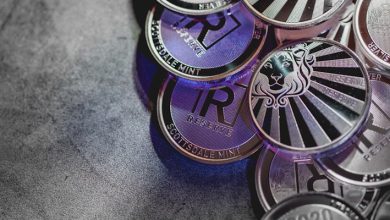How Regulations are Shaping the Future of NFTs

- Navigating the evolving landscape of NFT regulations
- Impact of government oversight on the NFT market
- Regulatory challenges and opportunities for NFT creators
- Ensuring compliance: a guide for NFT platforms
- The role of decentralized finance in shaping NFT regulations
- Future trends in NFT regulation and enforcement
Navigating the evolving landscape of NFT regulations
As the popularity of NFTs continues to rise, regulators around the world are working to keep pace with this rapidly evolving digital asset class. Navigating the changing landscape of NFT regulations can be challenging for both creators and collectors alike. With each new regulation introduced, the rules governing NFTs become clearer, but also more complex.
Understanding the regulatory environment is crucial for anyone involved in the NFT space. From copyright laws to securities regulations, there are a variety of legal considerations that need to be taken into account when buying, selling, or creating NFTs. Failure to comply with these regulations could result in legal action, fines, or even the loss of valuable assets.
One of the key challenges in navigating NFT regulations is the lack of uniformity across jurisdictions. Each country has its own approach to regulating NFTs, making it difficult for market participants to ensure compliance on a global scale. This lack of consistency can create uncertainty and confusion, hindering the growth of the NFT market.
Despite these challenges, many in the NFT community see regulation as a necessary step towards mainstream adoption. By establishing clear guidelines and protections for investors, regulators can help legitimize NFTs as a legitimate asset class. Collaboration between industry stakeholders and regulators is essential to strike the right balance between innovation and consumer protection.
Impact of government oversight on the NFT market
Government oversight plays a crucial role in shaping the future of the NFT market. As regulators around the world start to pay more attention to the booming NFT space, they are introducing new rules and guidelines to ensure consumer protection and prevent fraud. These regulations are aimed at bringing more transparency and accountability to the NFT market, which can help build trust among investors and collectors.
One of the main impacts of government oversight on the NFT market is the need for platforms and creators to comply with anti-money laundering (AML) and know your customer (KYC) regulations. By requiring NFT marketplaces to verify the identities of their users and monitor transactions for suspicious activities, regulators hope to prevent illegal activities such as money laundering and terrorist financing in the NFT space.
Additionally, government oversight can also influence the way NFTs are taxed. As the popularity of NFTs continues to rise, tax authorities are starting to pay more attention to the tax implications of NFT transactions. This could result in new tax laws and reporting requirements for NFT creators and investors, which may impact the overall profitability of NFT investments.
Regulatory challenges and opportunities for NFT creators
When it comes to regulatory challenges and opportunities for NFT creators, there are several key factors to consider. One of the main challenges facing NFT creators is the lack of clarity surrounding intellectual property rights. Without clear regulations in place, it can be difficult for creators to protect their work and ensure that they are fairly compensated for their efforts.
On the other hand, there are also opportunities for NFT creators to navigate these regulatory challenges and establish themselves in the market. By proactively seeking legal advice and understanding the regulations that apply to their work, creators can position themselves as leaders in the industry and attract a wider audience for their NFTs.
Another regulatory challenge for NFT creators is the issue of money laundering and fraud in the market. As NFTs become more popular, regulators are increasingly concerned about the potential for illegal activities to take place within the industry. This has led to calls for greater oversight and regulation of the NFT market to prevent these issues from occurring.
Despite these challenges, there are also opportunities for NFT creators to work within the regulatory framework to their advantage. By complying with anti-money laundering regulations and implementing strong security measures, creators can build trust with their audience and establish themselves as reputable players in the market.
Ensuring compliance: a guide for NFT platforms
Ensuring compliance is crucial for NFT platforms to operate within the bounds of the law. Compliance with regulations helps protect creators, buyers, and the platform itself from potential legal issues. To ensure compliance, NFT platforms must implement robust security measures to protect against fraud and ensure the authenticity of digital assets.
Additionally, platforms should conduct thorough due diligence on creators to verify their identities and ensure they have the rights to sell the NFTs. This can help prevent copyright infringement and other legal disputes. Platforms should also establish clear terms of service that outline the rights and responsibilities of all parties involved in the NFT transaction.
Furthermore, staying informed about regulatory developments in the NFT space is essential for compliance. Regulations surrounding NFTs are still evolving, so platforms must stay up-to-date on any changes that may impact their operations. Engaging with legal experts can also help platforms navigate complex regulatory requirements and ensure they are operating within the law.
By prioritizing compliance, NFT platforms can build trust with creators and buyers, attract more users, and establish themselves as reputable players in the industry. Compliance is not just a legal necessity, but also a strategic advantage that can help platforms thrive in the rapidly evolving NFT market.
The role of decentralized finance in shaping NFT regulations
Decentralized finance (DeFi) plays a crucial role in shaping the regulations surrounding non-fungible tokens (NFTs). NFTs have gained significant popularity in recent years, leading to a surge in transactions and investments. However, the lack of clear regulations has raised concerns about security, fraud, and investor protection.
DeFi platforms offer a decentralized alternative to traditional financial systems, allowing users to trade, lend, and borrow digital assets without the need for intermediaries. This peer-to-peer nature of DeFi makes it challenging for regulators to monitor and enforce compliance with existing laws.
As NFTs continue to gain traction, regulators are closely monitoring the DeFi space to ensure that appropriate measures are in place to protect investors and prevent illicit activities. The decentralized nature of DeFi platforms presents unique challenges for regulators, as they must find a balance between promoting innovation and safeguarding against potential risks.
By collaborating with industry stakeholders, regulators can develop a framework that promotes transparency, accountability, and security in the NFT market. This collaborative approach will help establish clear guidelines for DeFi platforms to operate within the legal boundaries, ultimately benefiting both investors and the broader ecosystem.
Future trends in NFT regulation and enforcement
The future trends in **NFT** regulation and enforcement are crucial in shaping the landscape of digital assets. As the popularity of **NFTs** continues to rise, governments and regulatory bodies worldwide are paying closer attention to this emerging market. It is expected that there will be a **surge** in regulations surrounding **NFTs** in the coming years to protect consumers and investors from fraud and **illicit** activities.
One of the key trends in **NFT** regulation is the **increased** scrutiny on **anti-money laundering** (AML) and **know your customer** (KYC) compliance. Regulators are **focusing** on ensuring that platforms selling **NFTs** adhere to these **regulations** to prevent money laundering and terrorist financing. This will likely result in **stricter** requirements for **NFT** marketplaces and sellers to verify the identity of their **customers**.
Another trend to watch for in **NFT** regulation is the **implementation** of tax laws on digital assets. As **NFTs** are **considered** valuable assets, governments are looking into ways to tax transactions involving **NFTs**. This could mean that **NFT** creators and buyers may be subject to capital gains taxes or other **levies** in the future.
Furthermore, we can expect to see **heightened** enforcement actions against **bad actors** in the **NFT** space. Regulators will likely crack down on **fraudulent** **NFT** sales, **plagiarism**, and other **illegal** activities to protect the integrity of the market. **Enforcement** actions may include fines, **penalties**, and even criminal charges against those **found** **guilty** of **violating** **NFT** regulations.
In conclusion, the future of **NFT** regulation and enforcement is **evolving** rapidly to keep pace with the **explosive** growth of the market. By staying **vigilant** and **adapting** to these trends, **stakeholders** in the **NFT** ecosystem can **navigate** the regulatory landscape **successfully** and **ensure** the long-term **sustainability** of this **innovative** asset class.



